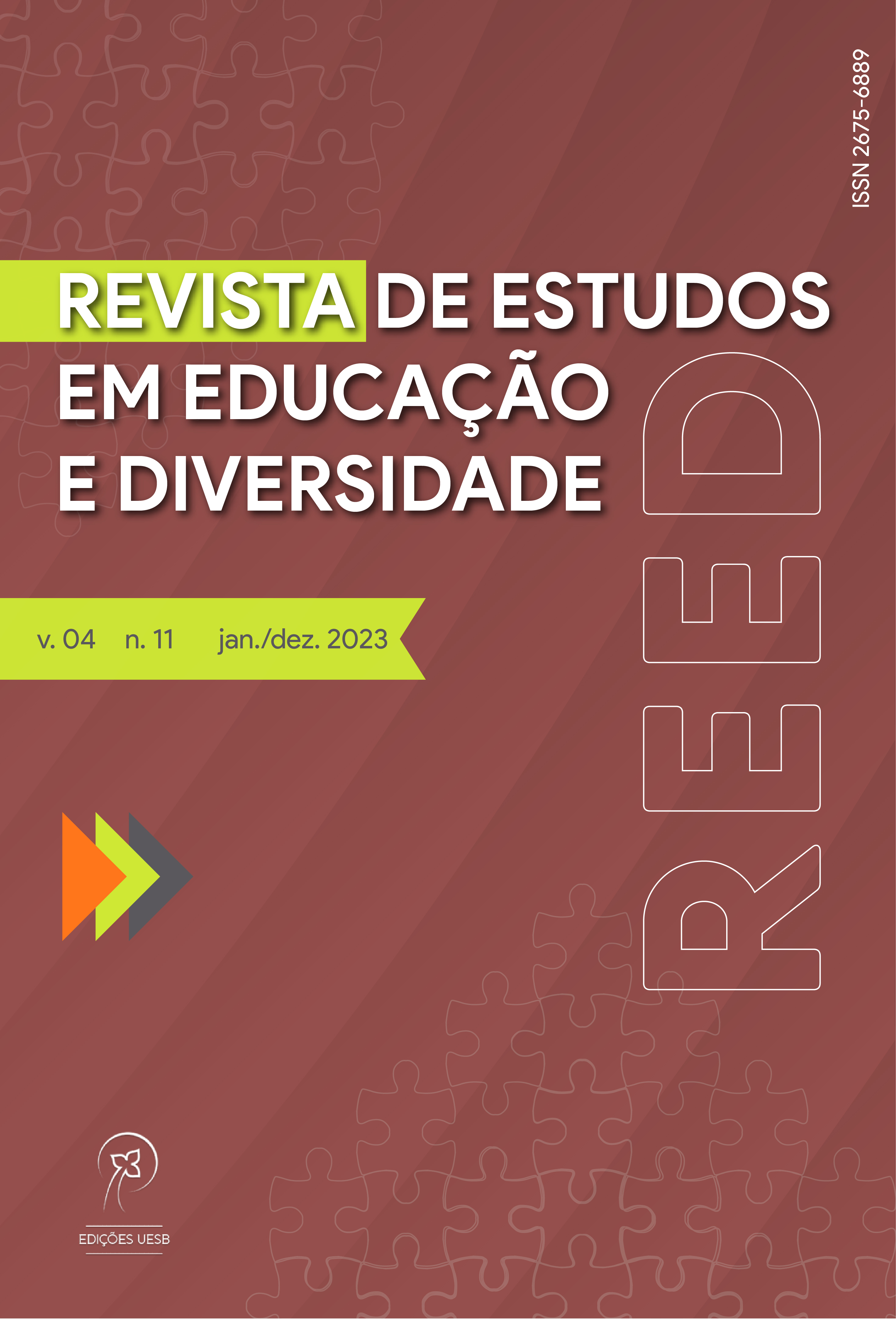Caminando con la termoquímica: explorando el potencial de la experimentación y el juego en clases del práticum supervisadas
DOI:
https://doi.org/10.22481/reed.v4i11.14036Palabras clave:
lúdico, experimentación, enseñanza de químicaResumen
Este estudio tiene como objetivo analizar el desarrollo de una secuencia didáctica con experimentación y juego para dinamizar la enseñanza de Termoquímica. La experimentación no solo contextualiza, sino que también fomenta la investigación y la resolución de problemas. El componente lúdico proporciona a los estudiantes un enfoque divertido para asimilar y revisar los conceptos de Termoquímica, estimulando su participación activa en el proceso de aprendizaje. Así, en el contexto del Estadio Supervisado en Química II, se realizó una investigación cualitativa por medio de observaciones registradas en diarios de prácticas. El Análisis Textual Discursiva de esos diarios resultó en categorías de análisis, destacando las contribuciones del lúdico y de la experimentación para la enseñanza de Termoquímica. El juego no solo ayudó a la fijación de contenido, sino que también familiarizó a los estudiantes con términos desconocidos, facilitando correlaciones en clases subsecuentes. En cuanto a la experimentación, la participación activa de los estudiantes promovió una interacción positiva, permitiendo la comprensión de las reacciones de los experimentos. Se concluye que la combinación de experimentación y elementos lúdicos contribuye significativamente a la comprensión del contenido, la participación activa de los estudiantes y la correlación de conceptos, por lo que el proceso de aprendizaje más significativo.
Descargas
Citas
BOGDAN, R. C.; BIKLEN, S. K. Investigação Qualitativa em Educação. Tradução: ALVAREZ, M. J.; SANTOS, S. B.; BAPTISTA, T. M. Rev. VASCO, A. B. Portugal: Porto, 1994. 336p.
BRASIL. MEC. Lei 9394, de 20 de dezembro de 1996. LDB - Leis de Diretrizes e Bases da Educação Nacional. D.O.U. de 23 de dezembro de 1996.
BRASIL. Ministério da Educação. Base Nacional Comum Curricular. Brasília, 2018.
CUNHA , Marcia Borin. Jogos no Ensino de Química: Considerações Teóricas para sua Utilização em Sala de Aula. Química Nova na Escola , v. 34, n. 2, p. 92-98, 2012. Disponível em: http://qnesc.sbq.org.br/online/qnesc34_2/07-PE-53-11.pdf. Acesso em: 24 dez. 2022.
FELÍCIO, Cinthia M.; SOARES, Márlon H. F. B. Da Intencionalidade à Responsabilidade Lúdica: Novos Termos para Uma Reflexão Sobre o Uso de Jogos no Ensino de Química. Química Nova na Escola , São Paulo, v. 40, n. 3, p. 160-168, 2018. Disponível em: http://qnesc.sbq.org.br/online/artigos/05-EA-33-17.pdf. Acesso em: 23 dez. 2022.
GIORDAN, M. O papel da experimentação no ensino de ciências, Química Nova na Escola. 10, 43-49, 1999.
HUIZINGA, J. Homo Ludens: O jogo como Elemento da Cultura. Tradução: João Paulo Monteiro. São Paulo: Perspectiva, 2001.
LIMA, José Ossian Gadelha de. Perspectivas de novas metodologias no Ensino de Química. 2012. Disponível em: http://www.educadores.diaadia.pr.gov.br. Acesso em: 23 out. 2023.
MORAES, R.; GALIAZZI, M. do C. Análise textual discursiva. 2. ed. Rio Grande do Sul: Unijuí, 2013. 224p.
OLIVEIRA, Noé de et al. Atividades de experimentação investigativas lúdicas no ensino de química. 2009.
PIAGET, J. A formação do símbolo na criança. Rio de Janeiro: Zahar, 1975.
SOARES, M. H. F. B.; CAVALHEIRO, E. T. G. O ludo como um jogo para discutir conceitos de termoquímica. Química Nova na Escola, n. 23, maio de 2006.
VIANA, H. M. Pesquisa em educação: a observação. Brasília: Plano Editora, 2007.
Descargas
Publicado
Cómo citar
Número
Sección
Licencia
Derechos de autor 2023 Revista de Estudos em Educação e Diversidade - REED

Esta obra está bajo una licencia internacional Creative Commons Atribución 4.0.
Usted es libre de:
Compartir — copiar y redistribuir el material en cualquier medio o formato; Adaptar — remezclar, transformar y construir a partir del material para cualquier propósito, incluso comercialmente. Esta licencia es aceptable para Obras Culturales Libres. La licenciante no puede revocar estas libertades en tanto usted siga los términos de la licencia.
Bajo los siguientes términos:
Atribución — Usted debe dar crédito de manera adecuada, brindar un enlace a la licencia, e indicar si se han realizado cambios. Puede hacerlo en cualquier forma razonable, pero no de forma tal que sugiera que usted o su uso tienen el apoyo de la licenciante.
No hay restricciones adicionales — No puede aplicar términos legales ni medidas tecnológicas que restrinjan legalmente a otras a hacer cualquier uso permitido por la licencia.






